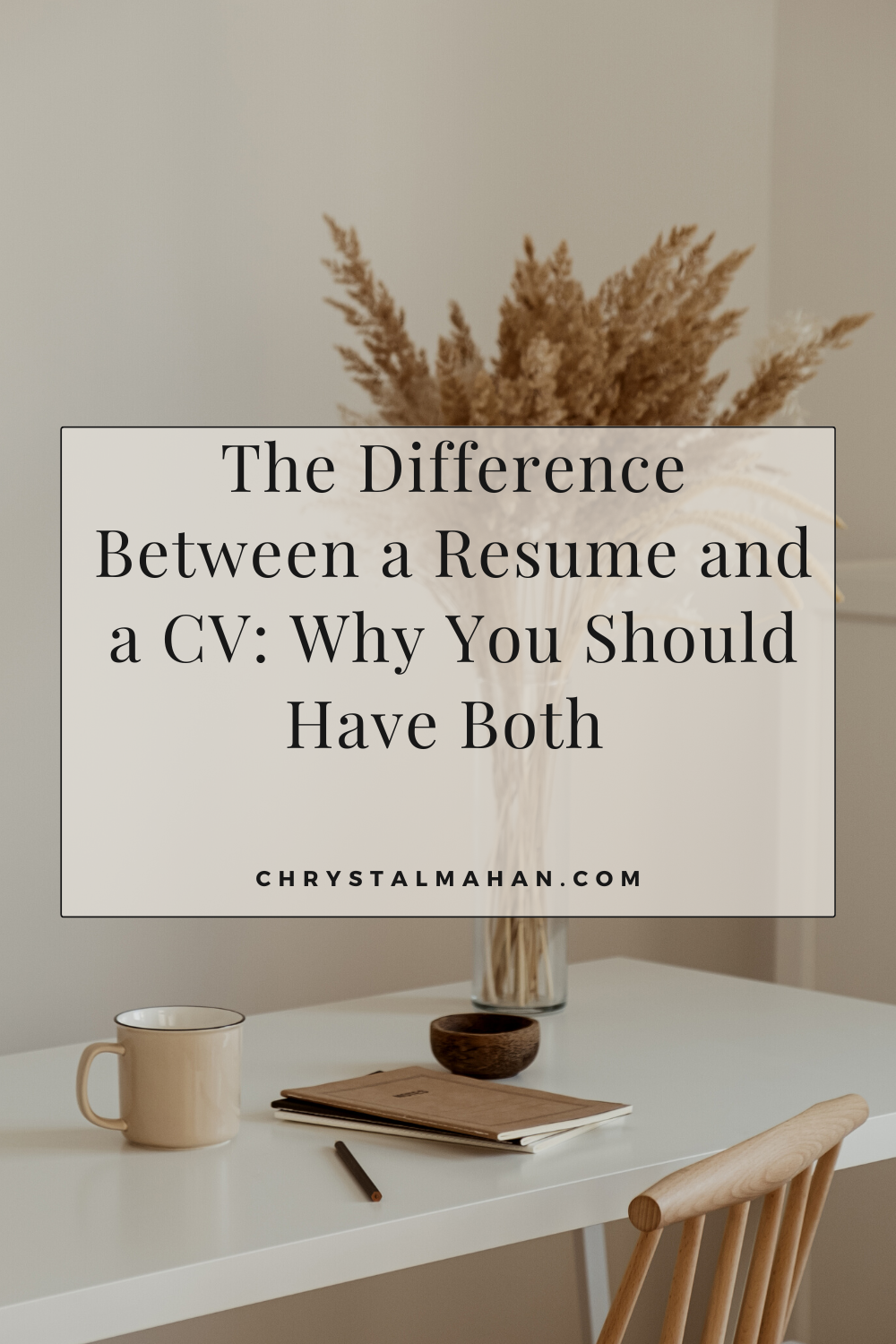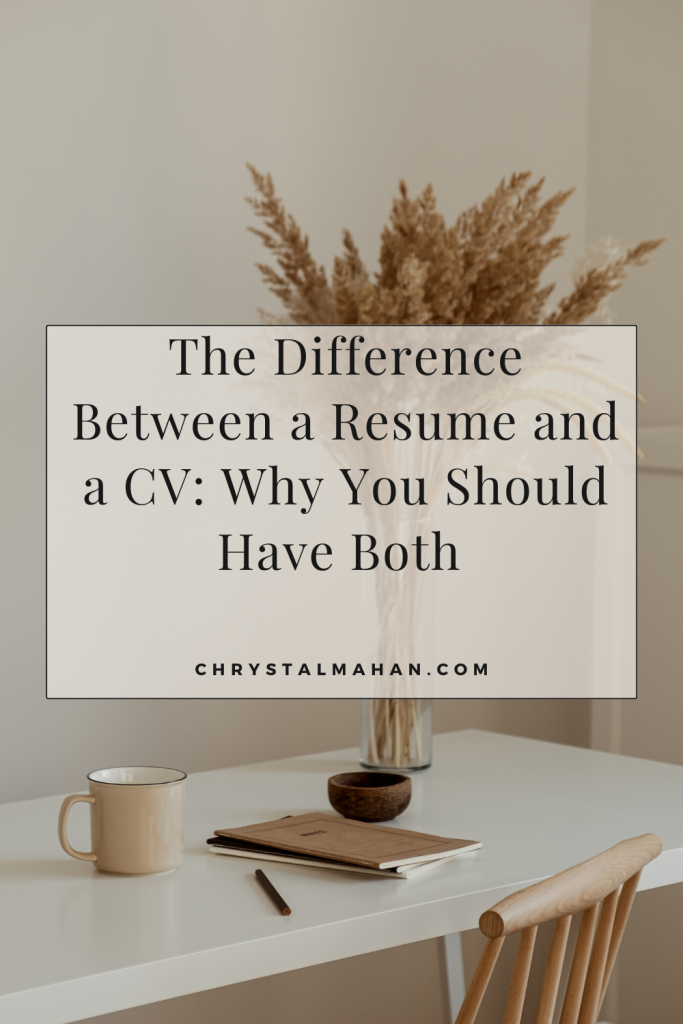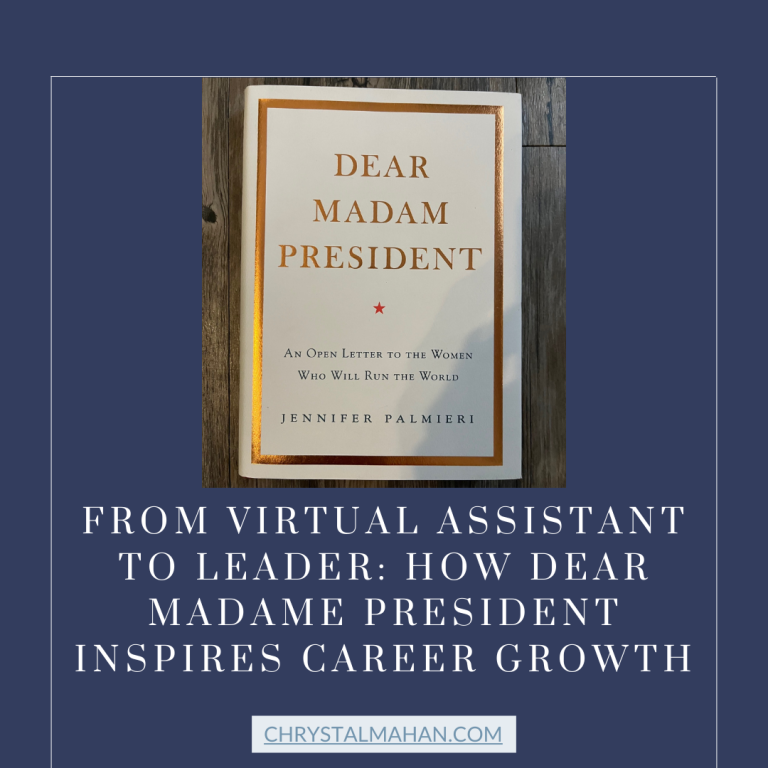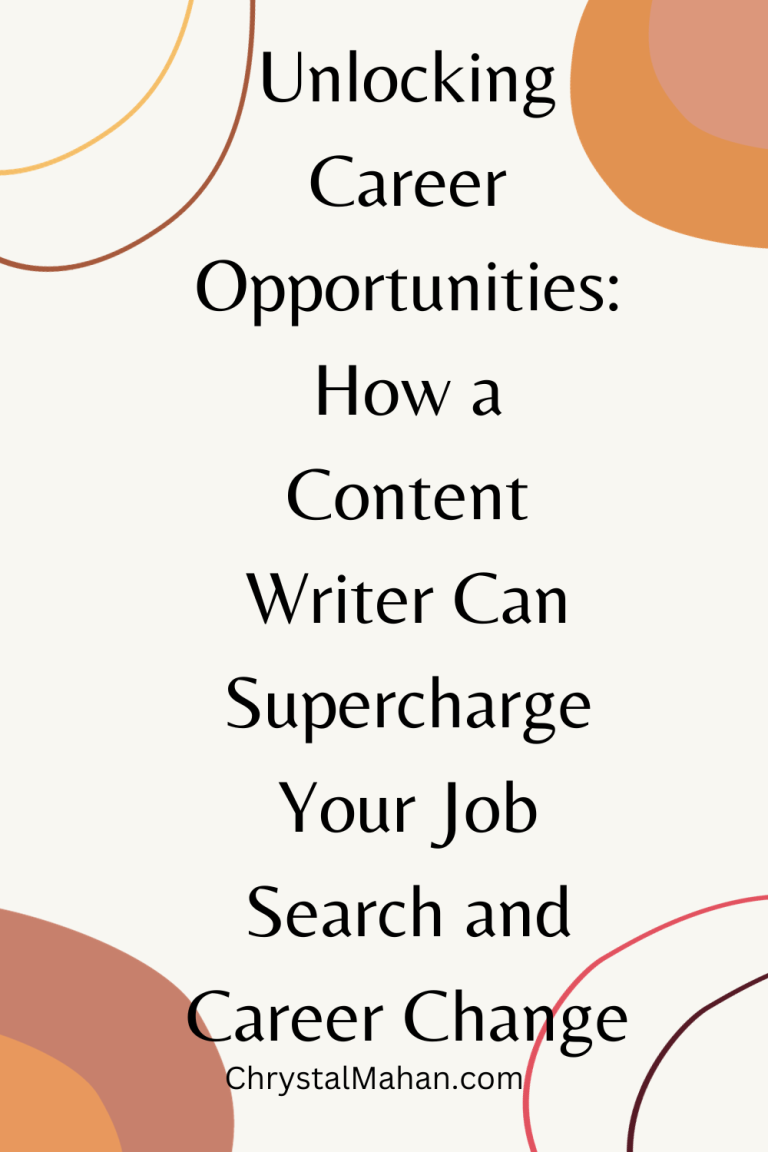The Difference Between a Resume and a CV: Why You Should Have Both


In the job hunting and career development world, the terms “resume” and “CV” are often used interchangeably. However, these two documents serve distinct purposes, and understanding their differences can be critical in presenting yourself effectively to potential employers and academic institutions. This article explores the distinctions between a resume and a CV and delves into why having both is essential for advancing your career and educational opportunities.
What is a Resume?
A resume is a concise and tailored document that typically spans one or two pages. It provides a snapshot of your professional background and is primarily used in the United States, Canada, and a few other countries. The primary purpose of a resume is to showcase your relevant work experience, skills, and qualifications to prospective employers.
Key Features of a Resume
Key #1. Conciseness: Resumes are typically shorter and more focused on the most critical aspects of your professional history.
Key #2. Customization: Resumes can be tailored to match the specific job you’re applying for, emphasizing relevant skills and experience.
Key #3. Chronological Order: Employment history is often listed in reverse chronological order, starting with your most recent job.
Key #4. Bullet Points: Accomplishments and responsibilities are often presented as bullet points for quick readability.
Key #5. Objective or Summary: Resumes may include a brief career objective or summary statement.
What is a CV?
On the other hand, a Curriculum Vitae (CV) is a comprehensive document that provides a detailed overview of your academic and professional background. CVs are commonly used in Europe, Asia, Africa, and the Middle East, as well as in the academic and research fields. Unlike a resume, a CV is not limited by page length and may extend for several pages, allowing you to delve deeply into your accomplishments.
Key features of a CV
Key #1. Comprehensiveness: CVs encompass not only your work experience but also your education, research, publications, presentations, honors, and more.
Key #2. Static Structure: CVs follow a standard format and do not change significantly from one application to another.
Key #3. Academic and Professional Achievements: In addition to work history, CVs emphasize academic achievements, research, and professional accomplishments.
Key #4. No Length Restriction: CVs can be as long as necessary to encompass all relevant information.
Key #5. References: CVs often include a section for references, while resumes typically do not.
Why You Should Have Both a Resume and a CV
Now that we’ve clarified the differences between a resume and a CV, let’s explore why having both documents is beneficial.
Reason #1. Versatility: Having both a resume and a CV equips you with versatile tools for various opportunities. Resumes are ideal for job applications in countries where they are common, while CVs are essential for academic positions, research opportunities, and international job applications.
Reason #2. Tailored Applications: Resumes allow you to tailor your application for specific job openings. You can highlight the skills and experiences most relevant to a particular position, making your application more targeted and compelling.
Reason #3. Comprehensive Documentation: A CV is a comprehensive record of your academic and professional journey. It’s invaluable when applying for academic positions, research grants, or roles that require an extensive portfolio of accomplishments.
Reason #4. International Mobility: If you’re pursuing an international career, a CV is essential for opportunities outside the United States and Canada. It’s the preferred format in many countries and industries, making it easier to present your qualifications globally.
Reason #5. A Well-Rounded Professional Image: Employers and academic institutions often view candidates with both a resume and a CV as well-rounded professionals. This dual documentation strategy shows that you’re adaptable and ready to seize a wide range of opportunities.
Reason #6. Future-Proofing: As your career evolves, your needs may change. By maintaining both a resume and a CV, you’re prepared for unexpected opportunities or career transitions without the need for extensive document overhauls.
Ready to Get Started on Your Resume, CV, or Both?
Understanding the distinctions between a resume and a CV and recognizing the value of having both in your professional toolkit is essential. By doing so, you can position yourself effectively for a wide range of opportunities, whether in the corporate world, academia, or global stage. Your resume highlights your tailored qualifications for specific jobs, while your CV showcases your comprehensive academic and professional journey. Together, they ensure that you’re well-prepared to seize any opportunity that comes your way, and that’s a powerful advantage in the competitive landscape of career and education.
Do you need help putting together your resume, CV, or cover letter? I’m happy to help. Contact me at any of my contact methods, and let’s get started.






